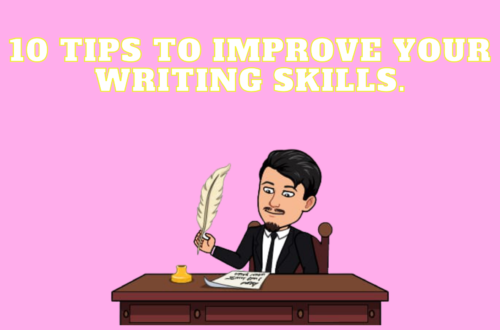
Jaun Elia: A Man in love with words.
Jaun Elia, the most searched Urdu poet, is famous for his work on love, heartbreak, philosophy, and society views. He is the most celebrated Pakistani poet—a successful man in terms of wealth, fame and family for the outside world. But only Jaun knew that he was lost in his world. His poetry is a bandage on the wounds of many hearts. But they couldn’t act as medicine to heal his deepest scars.
Jaun Elia was born in Amroha, Uttar Pradesh, on 14 December 1931. He was known to be a natural poet. Jaun migrated to Pakistan in 1957 after the partition of India. It was difficult for Jaun to leave Amroha and move to Karachi. Jaun identified himself as a communist and hated the partition of India. He had a distinct style of writing. Even though he has been writing poetry since he was eight years old, he published his first collection after turning 60. His poetry revolved around the themes of pain, grief, and suffering so deep that he is still known to be alive through his poetry. Perhaps one of the reasons he is still alive through his work is because his work was progressive.
He was obsessed with words. He excelled in every way with his exemplary style of poetry in Urdu. No one understood his obsession with poetry. He was never a family man constrained to daily tasks, resulting in falling out of his relationship with his wife and children. Jaun wasn’t a good father or a husband. He was an alcoholic as well. From having to have heartbreak because of his first love, leaving his birthplace and, in his own words, ‘living the life he most hated’, the man had deep grief. He always dreamt of an egalitarian society and hoped for the better for Pakistan and Kashmir. His words always resonated so profoundly with our social and cultural conditions.
But why was he so in love with words and not in love with the life he was living? One might even say that he was obsessed with poetry. It might be because he was obsessed with loneliness and grief in his life. Maybe he wanted to leave the misery behind but couldn’t muster up the courage to do so. He believed that one should have love in life to live life to the fullest. But was he ever happy? Perhaps he was obsessed with words because that was the only place he found solace.
Main bhi bahoth ajeeb hun itna ajeeb hun ki bas,
Khud ko tabah kar liya aur malal bhi nahi.
He says he is very strange, so strange that he has spoiled his life and doesn’t even regret it.
Iss samandar pe tishna-kam hun main,
Baan tumm abh bhi behh rahin ho kyaa.
He was heartbroken to move to Karachi from his beloved Amroha. Baan is the river that flows in Amroha. Jaun describes the experience as ‘I am thirsty in this ocean, Baan are you still flowing’. He grieves migrating and wonders about the present condition of his homeland. Like millions of others, he was forced to relocate to Karachi after his parents passed away and his brothers migrated. His identity and sense of existence were deeply connected with his childhood place. Hence it left a deep scar on his soul to leave Amroha.
Meri har baat be-asar hi rahi,
Nuqs hai kuch meray bayan main kya.
Jaun talks about how his words remain without effect on society, doubting himself if there is a flaw in his narrative.
Bedil yun hin din guzar jayenge,
Sirf zinda rahe hum toh mar jayenge.
Jaun expresses his views on how profound love is to a person in life. He talks about time passing by without love in life, and just existing in a loveless life doesn’t make someone feel alive. Jaun always expressed love as the essential factor someone should have in life. Money and fame meant nothing to Jaun. Perhaps regardless of having a family, he did not feel loved or couldn’t love himself with so much grief stuck in his heart.
Kya sitam hai ki ab teri surat,
gaur karne par yaad aati hai.
jaun talks about trying hard to remember the faces of his loved ones. He hasn’t moved on from his past heartbreaks and says it’s cruel to try so hard to remember the appearance of a loved one.
Mustaqil bolta hi rehta hun,
Kitna khamosh hun main andar se
Jaun talks about his love for words and how he keeps writing poetry. But he feels that he is empty inside.
Dil ki taklif kam nahin karte
Ab koi shikva hum nahin karte
Jaun talks about overcoming the sorrow in his heart. He confesses to not being able to reduce the grief at his heart and informs that he doesn’t complain about it anymore as well
Ai shaks main teri justuju se
Be-zar nahin hun thak gaya hun
Jaun says he is not sick of seeking a person or existence but is tired of the search.
Ab jo rishtn mein bandhaa hun to khulaa hai mujh par
Kab parind udd nahin paate hai paron ke hote
Jaun talks about being stuck in relationships. He talks about how he cannot be free despite having freedom as he feels constrained due to his relationships.
Tarikh ne quamo ko diya hai yahi paigham
Haq mangna tauhin hai haq cheen liya jaye
Jaun says that history has taught people of nations or communities only one lesson: to not beg for their rights and to seize them. He calls for people for social and political revolution in Pakistan after the partition for the unfair treatment of the rights. He never viewed Pakistan as an Islamic country, and he recognized himself as an agnostic person.
Teri qimat ghatai ja rahi hai
Mujhe furqat sikhai ja rahi hai.
Jaun talks about how deeply he was affected by the partition of India. He talks about losing the prosperity of a united India. He grieves about learning what separation feels like due to the partition. The partition of India played a crucial role in jaun’s life. Due to partition, his first love moved to Karachi and got married. His three brothers migrated to Pakistan one by one. He lost his parents. And he was forced to migrate to Pakistan like millions of others. Due to this, he feels a loss of identity and detachment from love in his life.




